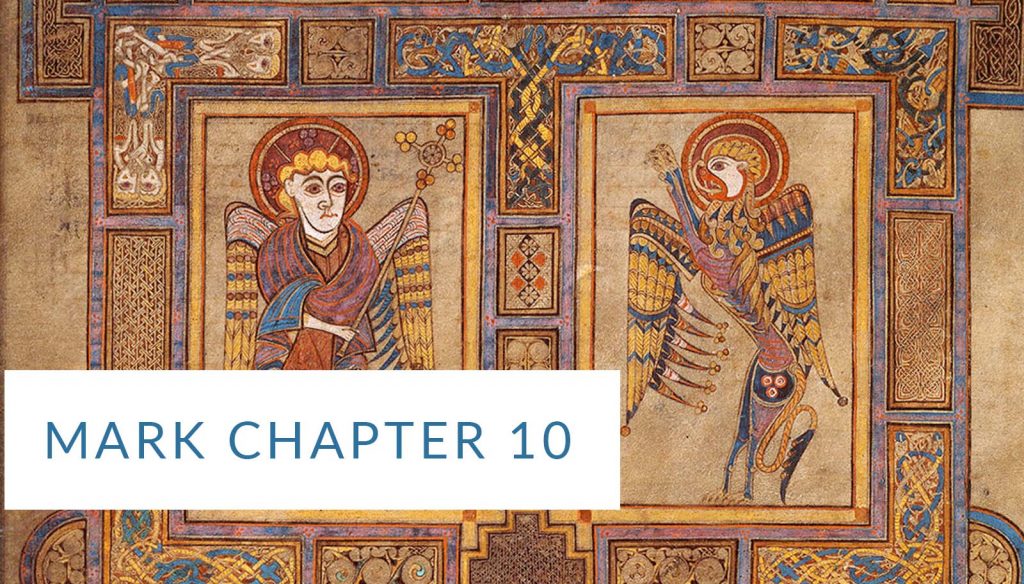This week’s readings are all from Mark chapters 8-9. Each day’s segments of the readings will be posted on this site during the week.
Today's Reading:
They were on the way, going up to Jerusalem. Jesus was going ahead of them, and they were amazed, but those who followed were afraid. He took the twelve aside again and began to tell them what was going to happen to him. “Look, we are going up to Jerusalem, and the Son of Man will be handed over to the chief priests and experts in the law. They will condemn him to death and will turn him over to the Gentiles. They will mock him, spit on him, flog him severely, and kill him. Yet after three days, he will rise again.”
Then James and John, the sons of Zebedee, came to him and said, “Teacher, we want you to do for us whatever we ask.” He said to them, “What do you want me to do for you?” They said to him, “Permit one of us to sit at your right hand and the other at your left in your glory.” But Jesus said to them, “You don’t know what you are asking! Are you able to drink the cup I drink or be baptized with the baptism I experience?” They said to him, “We are able.” Then Jesus said to them, “You will drink the cup I drink, and you will be baptized with the baptism I experience, but to sit at my right or at my left is not mine to give. It is for those for whom it has been prepared.” (Mark 10.32–40 NET)
They were on the way, going up to Jerusalem. Jesus was going ahead of them, and they were amazed, but those who followed were afraid. He took the twelve aside again and began to tell them what was going to happen to him. “Look, we are going up to Jerusalem, and the Son of Man will be handed over to the chief priests and experts in the law. They will condemn him to death and will turn him over to the Gentiles. They will mock him, spit on him, flog him severely, and kill him. Yet after three days, he will rise again.”
This is the third and final prediction from Jesus in Mark concerning his suffering, and it is the most detailed so far. He has been speaking plainly about this suffering since chapter 8. He is talking with them about his suffering, but James and John are still thinking of Jesus as a conquering Messiah who will be established as a king in glory/honor. Their question about sitting to the right and left of his (implied) throne is a desire to share in that honor. Jesus responds by telling them they will, instead, share in his suffering and that he does not choose who sits in those seats of honor.
The cup of which Jesus speaks is his suffering. In the Garden of Gethsemane, the night before his crucifixion, Jesus himself at least twice asks his Father to remove this cup, but submits to God's will (while his disciples sleep):
He said, “Abba, Father, all things are possible for you. Take this cup away from me. Yet not what I will, but what you will.” Then he came and found them sleeping, and said to Peter, “Simon, are you sleeping? Couldn’t you stay awake for one hour? Stay awake and pray that you will not fall into temptation. The spirit is willing, but the flesh is weak.” He went away again and prayed the same thing. When he came again he found them sleeping; they could not keep their eyes open. And they did not know what to tell him. He came a third time and said to them, “Are you still sleeping and resting? Enough of that! The hour has come. Look, the Son of Man is betrayed into the hands of sinners.
(Mark 14.36–41 NET emphasis added)
The images of the cup and baptism become central to the message of discipleship for those following Jesus (and would have been known by Mark's audience). Both were tied to his suffering and death, but also the hope of resurrection and new life. Paul says to the Romans concerning baptism:
... Do you not know that as many as were baptized into Christ Jesus were baptized into his death? Therefore we have been buried with him through baptism into death, in order that just as Christ was raised from the dead through the glory of the Father, so we too may live a new life.
For if we have become united with him in the likeness of his death, we will certainly also be united in the likeness of his resurrection. We know that our old man was crucified with him so that the body of sin would no longer dominate us, so that we would no longer be enslaved to sin.
(Romans 6.2–6 NET)
They were on the way, going up to Jerusalem. Jesus was going ahead of them, and they were amazed, but those who followed were afraid. He took the twelve aside again and began to tell them what was going to happen to him..
so this first part caught me and I’ve read over and over.. who were “they” that were amazed and “those“ who were afraid? The large crowds just following him? The disciples? Both?
